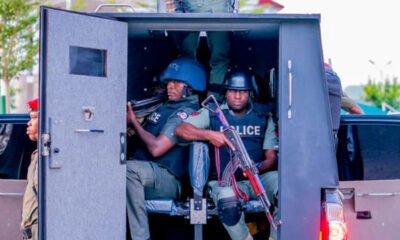Education
Why we charge N42m fees for primary school pupils — Charterhouse Lagos
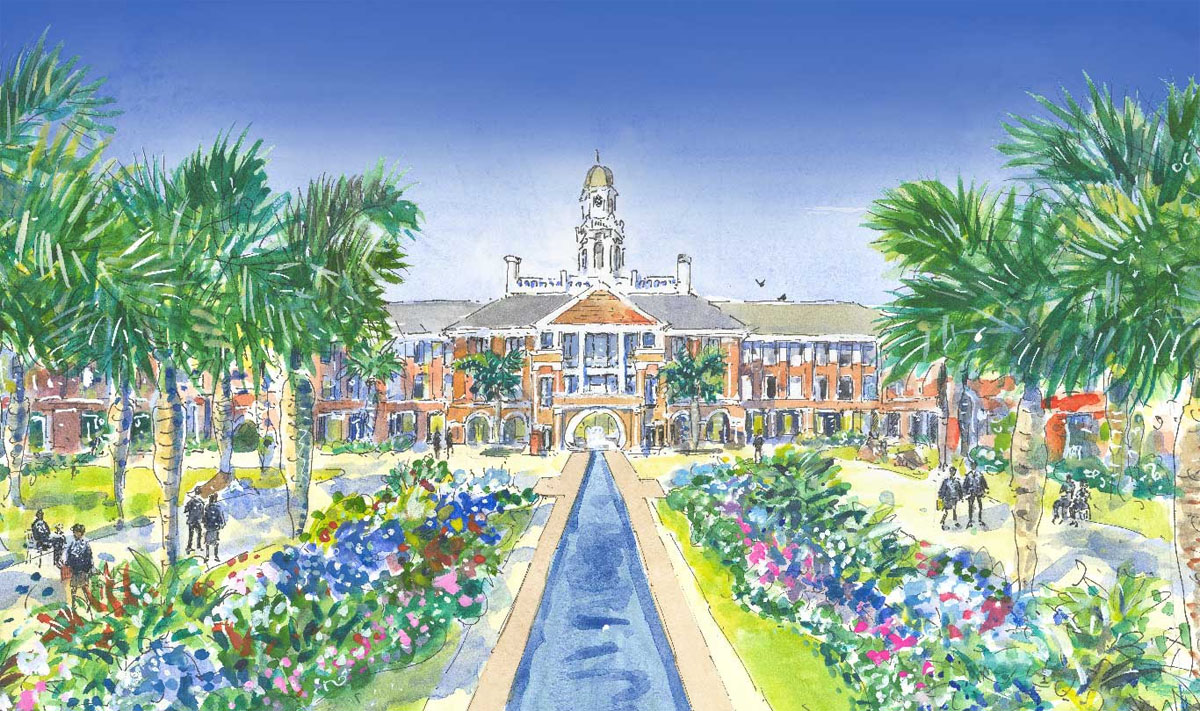
Why we charge N42m fees for primary school pupils — Charterhouse Lagos
Following a recent criticism and condemnation from members of the public over the report of N42 million as school fees per annum for each primary school student and N2 million as a non-refundable registration fee at the Charterhouse, a private-owned British school which is newly opened in Lagos and its first in Africa, the management has reacted.
Meanwhile, some had described the fees as extremely outrageous and also a waste of scarce resources for any parent to pay such a huge amount of money to sponsor just a primary school pupil in an economy such as Nigeria’s where the majority of citizens wallow in abject poverty and the minimum wage is just N30,000 per month.
Some others also expressed reservations on the matter, which went viral on the social media space, especially X (formerly Twitter), stating that it is not by compulsion for any parents to enrol their children in the school.
But the school in its reaction denied knowing the public outrage against its fees.
It says people have the right to express their opinions and feelings on their fees and any other issues they feel concerned about, but parents who have an interest in bringing their children to Charterhouse are not complaining.
Speaking to Tribune Online in an exclusive interview, the director of Communications, Admissions and Marketing of the school, Mr Damilola Olatunbosun, explained why the school has to charge up to that amount.
He said, “Charterhouse is not just like every other school anywhere globally but a prestigious and value-driven world-class educational institution that parents, who love quality and second to none education will always want their children to be.”
READ ALSO:
- Environmental Pollution: Lagos seals RCCG
- JUST IN : Borrow pit collapses, kills seven Qur’anic school pupils
- Tragedy as man slumps, dies while trying to bail 2 sons at police station
He noted that since the school was officially launched last September, many parents have shown interest in enrolling their children.
According to him, most parents who come to us are not surprised about our fees as it is within what they can afford.
“Some parents are here in Nigeria and some based abroad. And they know the quality of education we will give to their children. It is about value and not whether the fees is high or not.
“They know it will cost them more if they are to send their children abroad and get the same quality and value we will give them here in Nigeria. The foreign exchange and the associated costs as well as nearness.
“Even though, we are yet to commence academic activities and we have not also done with our construction works, no school in Nigeria has the facilities we have already put in place.
“And it is not all about physical structures in Charterhouse, but also about quality, both academic and extra-curriculum, and value for our learners.
“Schooling in Charterhouse Lagos will be the same as in Charterhouse UK or any other high-profile UK-based school. The only difference is that the Chaterhouse here will be immersed in the Nigerian culture thereby giving our students the best of British education in a multicultural environment.
“So, we are not just any other school, and many prominent Nigerians, who are either products of Charterhouse or have any of their children or relations attended the school in the UK are very glad that Charterhouse is now here in Lagos Nigeria.
“Even here in Lagos, there are some schools, for example, that charge in millions of Naira per annum while some in hundreds of thousands and yet some others charge something lesser.
READ ALSO:
- We expect massive roll-outs of Nigeria-made cars by December 2024 – Minister
- Ondo APC primary: Ododo, gov aspirant in open confrontation
- Don’t let them get to me through you, Portable warns wife
“So, it is now left for parents to decide which one to enrol their children based on the value they want and their purse.
“We are building on 70 hectares of land in Lekki and it will cost us over $150 million at completion and that is why we are very sure that by the time we are done, people will appreciate us better.”
Olatunbosun explained further that even though the original plan of the school is to open its primary school section doors for its first batch of pupils this September, the second batch which is for junior secondary school students in 2026 and the third batch, which are senior school students two years after, the school has now decided to bring backwards the second batch to 2025 based on the parents’ demand.
“So, those who want quality and familiar with Charterhouse know why their children must come to our school.
When asked if the school had ever envisaged huge patronage even at inception, he answered in affirmation, saying “We knew that most Nigerians value quality education and those who have the financial wherewithal would not mind to pay for it.
“So, to us, we are not surprised about the large number of patronage we have received so far.”
Speaking on whether the school would now likely adjust its fees downward particularly due to the wide criticism, the school’s spokesman emphasised that parents coming to enrol their children know and understand that accessing quality education will not come cheap.
According to him, “education is like somebody who is hungry and wants to take lunch and go to a restaurant where a plate of food is N5,000 and another go elsewhere to take the same size of food at just N2,000 and yet another go elsewhere where he or she will get it for N15,000 or more.
“Though the food may look alike, their value will never be the same.
“So, it is about providing value for money and that is what we do at Charterhouse.”
Why we charge N42m fees for primary school pupils — Charterhouse Lagos
Tribune
Education
ASUU to Tinubu: Vibrant Nigerians running away from lecturing

ASUU to Tinubu: Vibrant Nigerians running away from lecturing
The Academic Staff Union of Universities (ASUU) has raised the alarm that poor welfare conditions of public universities’ lecturers is discouraging qualified hands from taking up jobs in the university system.
Chairman, University of Ibadan chapter of the union, Prof. Ayo Akinwole, in a new year message noted that the situation also affects primary and secondary schools where teachers are not well-paid, leading to the reluctance of qualified teachers to take up employment in public primary and secondary schools, paving way for untrained and unqualified teachers hold sway. The result is the proliferation of private schools, most of which are out of the reach of the poor due to the exorbitant fees they charge.
He noted that Nigeria’s education is likely to remain the same because it has been allocated about 7 percent (N3.52 trillion) in the 2025 budget (47.90 trillion) “which falls far below the benchmark of 15-20 percent educational budget for underdeveloped countries like Nigeria, specified by both UNESCO and United Nations Fund for Population Activities (UNFPA), which has been advocated by our Union.”
READ ALSO:
- Anthony Joshua presents autographed glove to Tinubu during visit
- Gaza: 15 killed in Israeli new year’s strike
- In 2025, God’ll crush Rivers’ enemies — Fubara
While commending the Federal Government for setting up a committee to renegotiate the 2009 FGN/ASUU agreement, Akinwole warned against delayed tactics as characterised in previous administrations.
“To be sure, since 2017, various committees have been put in place by the government to renegotiate the agreement with ASUU. For instance, the Babalakin-led Joint Renegotiation Committee was set up, followed by Emeritus Professor Munzali Jubril-led Committee, and followed by the late Prof. Nimi Briggs-led Committee, which yielded a draft agreement between the committee and ASUU in 2021. Unfortunately, the Buhari administration refused to sign the Agreement reached by a Committee set up by it. It is, therefore, our opinion that instead of a fresh renegotiation of the Agreement, the Tinubu-led administration should rather set in motion a process that will lead to the review and signing of the Nimi Briggs-led renegotiated draft agreement as a mark of goodwill and assured hope for Nigeria’s public universities.”
The ASUU boss also criticised President Bola Tinubu’s agenda to eliminate TETFund under the tax administration bill stating that this would kill the little infrastructural funding which TETFund has been executing.
“This misbegotten policy will have huge and adverse implications for the university system in Nigeria. This is, no doubt, an attempt to destroy the major source of infrastructural funding for already struggling public tertiary institutions.. It is also an attempt to commodify university education in Nigeria.
READ ALSO:
- Benue police rescue kidnapped community leader, kill 1 suspect
- EPL: Arsenal sink Brentford 3-1 to close in on Liverpool
- Married man arrested for raping 10-year-old girl in Niger State
“A part of the tax administration bill proposes eliminating the education tax, to be replaced by a development levy. This would effectively disrupt the revenue stream of the Tertiary Education Trust Fund (TETFund), an agency set up as a product of the ingenuity and struggles of ASUU that has been the major source of funding for infrastructure development in many public tertiary institutions over the last decade. Since its establishment in 2011, TETFund has monitored the disbursement of education tax to public tertiary institutions in Nigeria. However, with this new bill, only 50 percent of the monies accruing to the levy would go to TETFund in 2025 and 2026. TETFund’s share will be upped to 66 percent in 2027, 2028, and 2029. Then, the agency would cease to get any revenue from 2030. From 2030, the development levy will be solely meant to fund the federal government’s student loan scheme. What this means is that the agency that funds infrastructural development in the Nigerian tertiary institutions is under the threat of extinction by 2030.
“It is a public hazard to conscript academics into an endless struggle for survival. There is a low level of motivation and an increasing rate of flight from the present condition at the slightest opportunity.”
Setting agenda for 2025 Professor Akinwole asked President Tinubu to pay attention to the “welfare of workers in the education sector and Nigerian workers is paramount, considering the state of the national economy and high cost of living, which has deepened the erosion of the conditions of service of our members”
The ASUU boss stated that it is expected that “the withheld three-and-a-half-month salaries and third party deductions owed our members should be paid forthwith. We also expect that the Earned Academic Allowances (EAA) should be released, just as we expect that the funding for the revitalisation of the universities should be released in accordance with the FGN-ASUU MoU of 2012, 2013, and the MoA of 2017”
“In the absence of visible and concrete efforts at addressing the pending issues and meeting our expectations, there is likely to be a long-drawn confrontation between our Union and the Federal Government, which will probably lead to another round of untold avoidable crisis in the university system in Nigeria.”
ASUU to Tinubu: Vibrant Nigerians running away from lecturing
Education
Canadian province opens 2025 government internship programs for international students

Canadian province opens 2025 government internship programs for international students
The Government of Prince Edward Island (PEI), a Canadian province, is inviting applications for its 2025 Internship Program.
This opportunity allows international students and recent graduates to gain experience working within the provincial government.
The internship program, which is a one-year temporary job assignment, offers participants the chance to build skills and gain professional experience in various PEI government departments.
According to the Prince Edward Island, the program also provides access to workshops, networking events, and other professional development resources to help interns grow in their careers.
The PEI internship program is set to begin in May 2025 and runs for one year. Interns will have the opportunity to work in multiple government departments, participating in workshops and professional development activities. These include career planning, conflict management, emotional intelligence, and training on equity, diversity, and inclusion (EDI), as well as anti-racism in the workplace.
READ ALSO:
- Police kill three suspected kidnappers, arrest two others in Imo
- Lagos govt seals Coca-Cola, Guinness, Peak Milk
- Makinde speaks on Sharia court controversy in Oyo
Additionally, the program provides a platform for;
- Networking,
- Helping interns to connect with government professionals and
- Build valuable relationships within the public service sector.
- Interns will also receive support to help them understand eligibility for government jobs and navigate potential future opportunities in the public service.
Eligibility and application requirements
To be eligible for the program, applicants must have completed a;
Post-secondary program within the past 36 months. Additionally,
- Candidates should be Canadian citizens, permanent residents, or eligible for a Canadian work permit.
- International students who meet these requirements are encouraged to apply.
Applications are currently being accepted, and interested candidates must submit their applications through the official PEI Internship Program Portal.
Interviews for shortlisted candidates will be held on March 4th and 5th, 2025. The internship program will begin in May 2025.
How to apply and important dates
Applicants can apply online through the official PEI Internship Program Portal.
Additional details, including position descriptions and participating departments, are available on the official website of the Government of PEI.
Canadian province opens 2025 government internship programs for international students
Education
Two ex-VCs, JAMB registrar to attend Prof. Ibraheem UNILAG inaugural lecture Wed
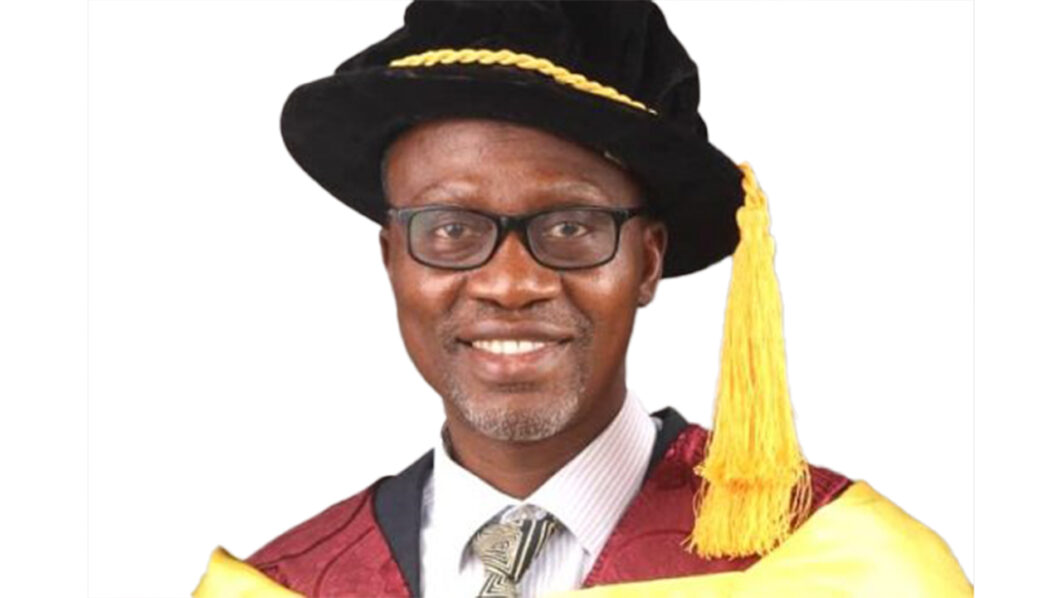
Two ex-VCs, JAMB registrar to attend Prof. Ibraheem UNILAG historic inaugural lecture Wed
- History beckons as Mass Comm alumnus delivers inaugural lecture Wed
History will be made this week Wednesday December 18, 2024 at University of Lagos when an alumnus of the university’s Mass Communication Department, Ismail Adegboyega Ibrahim, professor of journalism and communication studies, will deliver inaugural lecture as a lecturer of the department.
Ibraheem, a 1990 graduate of the university, returned to the institution in 2011 as a lecturer.
It is the first time a former student of the department will be delivering an inaugural lecture 58 years after its establishment.
Ibraheem, director of International Relations, Partnerships and Prospects at the UNILAG, will speak on “Casino Journalism and the End of History.”
The university’s Vice-Chancellor, Professor Folasade Ogunsola, will chair the event, according to a statement from the institution.
Two former vice-chancellors of the university, Professor Rahamon Bello and Professor Oluwatoyin Ogundipe, are expected to grace the lecture along with the Registrar of the Joint Admissions and Matriculation Board (JAMB), Professor Is-haq Oloyede, among others.
The lecture is scheduled for 4pm at the J.F. Ade. Ajayi Auditorium, UNILAG, Akoka.
Members of the University Community and general public are invited to join the lecture physically or virtually via Zoom Meeting ID:862 1255 2361.
-
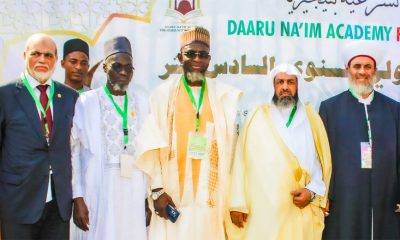
 metro1 day ago
metro1 day ago‘Deepen Shariah knowledge to curb misinformation’
-
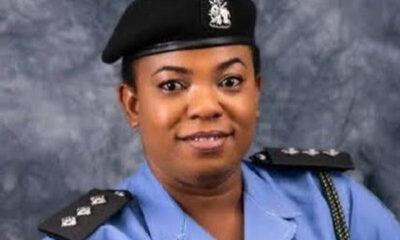
 metro1 day ago
metro1 day agoIlorin: Retired works controller murdered on New Year’s Day
-

 metro1 day ago
metro1 day agoJealous husband stabs Bishop to death over allege affair with wife
-
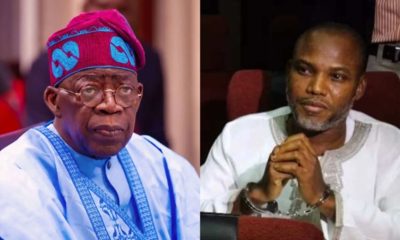
 metro1 day ago
metro1 day agoTinubu’s refusal to honour Seyi’s pact with us disappointing – Nnamdi Kanu’s family
-

 Politics3 days ago
Politics3 days agoHow Tinubu outsmarted Buhari to become president – Ojudu
-
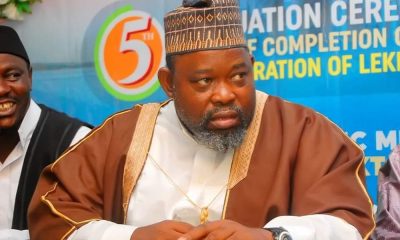
 metro17 hours ago
metro17 hours agoMosques should be research centres – Varsity don
-

 metro3 days ago
metro3 days agoHorror in Ogun as twin brothers kill, dismember sex worker
-

 metro3 days ago
metro3 days agoFire razes police station, buildings in Lagos

